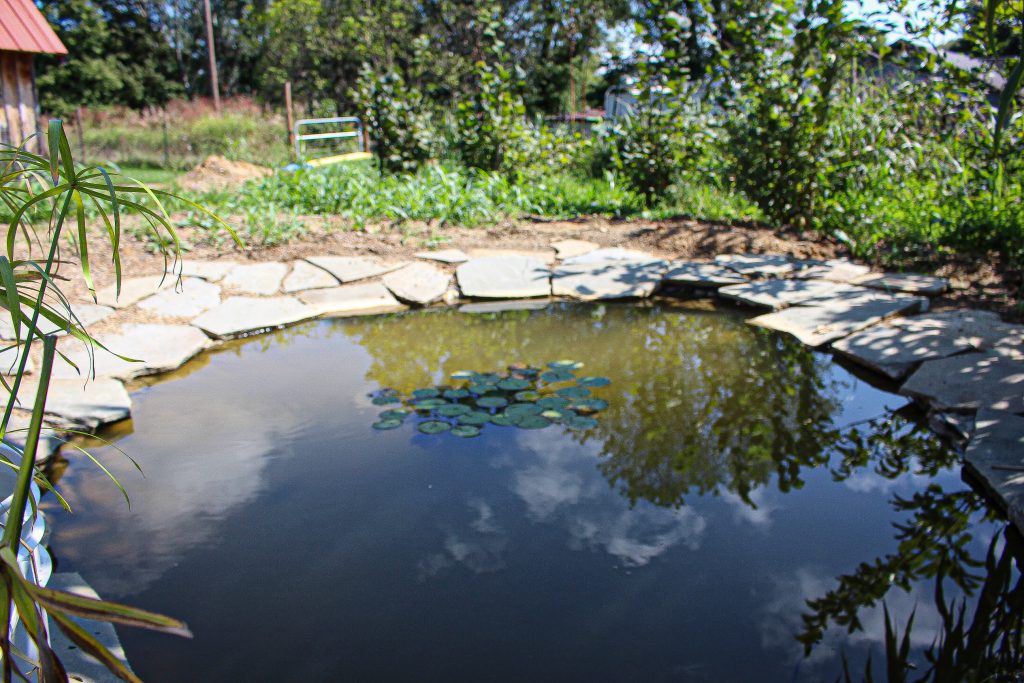
Small business owners face a dizzying array of challenges. They have to hire workers, maintain a place of work, and sell a product or a service. This is where Mayor Gary Goosman of Amesville and the Amesville Community Resources for Entrepreneurs (ACRE) come in.
Located at 29 Franklin Street in Amesville, ACRE occupies the same building that was once the old Amesville Elementary School. After the school closed, the building was abandoned for over a decade before the village of Amesville decided to hold an auction to sell the property. Goosman saw the nearly 60-year-old building as a resource.
“I didn’t want somebody to just tear it down and have a vacant lot. I just thought we have so little useable space in the village,” Goosman says.
$3,000 and Some Maintenance Later
On the day of the auction, Goosman and several other interested parties sat ready to bid. Everyone looked around and eventually the auctioneer started the bidding at $70,000.
When nobody bid, the auctioneer dropped the price to $60,000. When nobody bid on that, he dropped it to $50,000.
“It got down to $30,000 and then he said ‘just give me a number to start the bidding.’ So, I said $3,000,” Goosman says. “Nobody else bid and that was it.”
“I bought a 100,000 square foot building with an acre of land for $3,000 which is just outrageous.”
Now that he owned the building, Goosman had to figure out what to do with it. But first, there was a lot of cleaning to do. Starting with the old school supplies, Goosman went through the old desks and tables and gave most of them away or sold them.
Then, Goosman had to repair a lot of the old single-paned windows and purchase big heaters that run off propane to keep the building warm after discovering the pipes burst after the boiler sat untouched.
A Vision for Small Businesses
When it came time to figure out what to do with the building, Goosman weighed his options. He considered turning the rooms into living spaces, but it would have cost too much.
He even thought about turning the rooms into storage spaces for people to rent, but Goosman had his eyes on an idea that would keep the community involved.
“I knew small businesspeople had a hard time starting up around here because you don’t have the capital. You’re working out of your home in a spare room, and I think that was the most likely scenario when I owned the building was to find artists and small businesspeople who need the space and charge well-below market rate.”

Goosman chooses to charge well below market rate for each one of the rooms. Each room is about 900 square feet and comes with electricity and water for small additional charges. He knows he could get more, but to him, ACRE is not about making money.
“It’s to allow beginning entrepreneurs to get their feet under them, develop a business model, get a product line going, and not have too much expense. At some point, if they want to build their own studio and move on, they can,” he says.

A Great Response by the Community
Once Goosman cleaned the building up, he created a website and Facebook page. From there, he scheduled an open house and invited people from around the area to come and check out the space.
“On that first day, I rented two of the rooms. Then, from word to mouth, every room was rented in less than six months. That was faster than what I anticipated,” Goosman says.
That was 10 years ago. Now, Goosman says three people are waiting for one of the seven rooms to become available. Goosman added that much of his advertisement nowadays has been word of mouth.
Looking Ahead to the Future
The COVID-19 pandemic forced a lot of Americans to work from home. For some in rural Southeast Ohio, it can be tough to have access to reliable internet. Goosman wants to combat this issue.
“One thing that I have been thinking about lately is turning the community room into a remote workspace. In other words, I could have rolling workstations on wheels that could lock up,” Goosman says.
With his vision, Goosman sees a chance to have small workspaces equipped with all of the necessary equipment in the community room that can be wheeled out of the room when necessary.
“We have all of these little side businesses going on here beyond just the room rentals. Anything that we feel that the community needs and would be a benefit, we are willing to give it a try.”